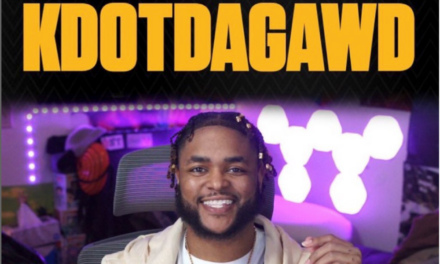I’ve spoken to a few people trying to build a content business but who aren’t yet consistently earning the revenue they need to pay their personal bills.
That makes sense. It takes an average of 18.4 months for a content entrepreneur to support themselves, according to The Tilt’s 2023 Content Entrepreneur Benchmark Research for the Creator Economy. For many, it takes even longer than that average.
Some creators are recent victims of corporate layoffs and are on the fence between going full time in their content business or looking for a new role. Others just haven’t zeroed in on the niche and audience that will make them successful.
But I see an opportunity for expert creators to bring in revenue indirectly related to your content businesses – doing freelance creation connected to your topic.
Not making enough yet in your #ContentBusiness to support yourself? Freelance your expert creator skills, says @Peter_Osborne. #CreatorEconomy Share on XAgency belt-tightening offers freelance opportunities
The marketing and public relations industries are not immune to belt-tightening, but there is an opportunity for creators who bring more specialized knowledge than the agency’s teams have and can write interesting, compelling copy that Chat GPT can’t.
I tend to find work with organizations looking for an experienced business journalist who asks good questions and is comfortable sitting down with a CEO and extracting great stories and insights. I record interviews and transcribe them so I can capture the subject’s voice.
“Sponsored content” makes me twitch a bit as a former newspaper editor (unless the client sees it as thought leadership rather than corporate chest-pounding), though I know many creators find it a lucrative stream. Recently, I pivoted to focus on the “Power of Questions,” coaching sales teams to ask better questions so they can anticipate and answer customer pain point questions, writing in-depth case studies and RFP responses, and raising executives’ visibility with op-eds and other strategic communications.
I mention my approach not to say you should do the same but because it’s critical to think about your niche, your audience, and your value so you can communicate it to freelancing business prospects.
Think about your #ContentBusiness niche, audience, and value so you can communicate it to #Freelancing business prospects, says @Peter_Osborne. #CreatorEconomy Share on XHow to successfully freelance with agencies
Pivots can take time to gain traction, so I’m testing how to make agency work a sustainable, friction-free revenue stream. Working with agencies often works out, but you can be better off getting your clients directly so you are in charge of the work and receive direct feedback. But agency work certainly helps you build some income, a portfolio, and a reputation.
Here are some of my observations so far:
- Familiarity does not always breed contempt. This is particularly true for ex-journalists. Companies and agencies in your market that know your work may be more comfortable putting you in front of their more important clients, particularly if they’ve either had to cut back or have added new clients but aren’t ready yet to ramp up.
- Remember, you don’t show up on the taxes, benefits, or occupancy lines of their budget. I pitched a former client on a new project retainer a few weeks ago who later told me she decided to bring someone in-house for the same price. I realized I didn’t do a good enough job reminding her that the same price for a freelancer and a full-time employee isn’t really the same. She wouldn’t have been responsible for my health care insurance or employer taxes, and she wouldn’t have to train me because she already knew I deliver clean copy quickly.
- You generally don’t have to be “managed.” I saw a column recently that talked about fostering deep relationships with remote and contract workers. I think those are different animals. Agencies don’t necessarily need to schedule weekly one-on-one check-ins with contract workers. They don’t need to go over KPIs (key performance indicators) beyond telling me whether my writing exceeded the goals or fell far short. I’m happy to have those conversations if you really feel they’re necessary, but I will likely factor standing team meetings into my pricing. I don’t need to be invited to social events or included in offsite retreats. That said …
- Set the tone early. Make sure you ask for detailed content briefs and examples of content the clients have liked. Don’t let your first project be a rush job (I can’t emphasize that enough) and be clear on pricing. In writing assignments, I try to avoid per-word and hourly pricing in favor of project pricing, and I’m often asked for my “wholesale price” because the agency will be marking up my costs. And ask how and when you’re going to be paid; a growing number of agencies pay net 60 (60 days after invoice submission) or worse.
- Contracts are good – particularly if they’re only a page or two. Detail the payment, payment terms, schedule, and deliverables. Also include, for example, what happens if you’re subjected to 23 revisions as it wends its way through myriad reviewers.
- Develop thick skin. I was told recently my writing required “massive rewrites” and “was not what we were looking for” because they wanted to cut my payment. That would have been fine if I hadn’t seen it published nearly verbatim with only a change in the introduction. Yeah, I’m still raw about that agency experience where many of the minefields mentioned above were present.
- Don’t ever steal the agency’s clients. Their clients may love your work and have experienced frustration with the agency’s previous person, but contracting directly with the client is not a great way to build a good reputation (and may even be prohibited based on your contract terms.) It’s one thing to be approached; it’s something else to email the client and solicit their business proactively.
Whether you create written, visual, or video content, agencies can benefit from your skills and you can benefit from the income as you grow your content business.
About the author
Peter Osborne is the founder ofFriction Free Communications LLCand has 40+ years of experience in business journalism, corporate communications, credit-card business development, and communications consulting. HisFrictionless newsletterpromotes alignment and simplicity as the ultimate friction fighters.










